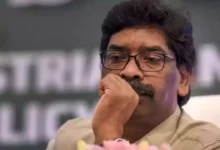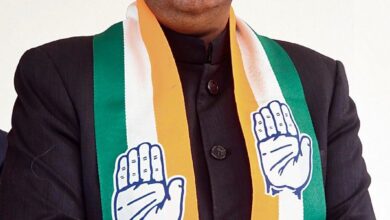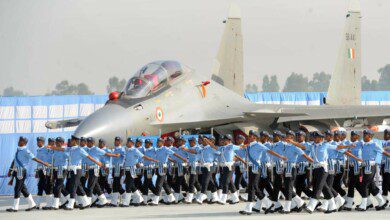In India’s political war rooms, poll strategists go from backroom guys to consultants and then campaign designers
A few decades ago, traditional Indian election campaigns may not have included Excel sheets, PowerPoint presentations, targeted content sharing, survey reports, technology, and an endless supply of data. Today, however, these components are crucial to winning strategies, with poll strategists playing a major role in moving beyond their traditional role as backroom boys.

With India’s elections approaching, the stakes could not be greater. The growth of poll strategists would seem to contradict the notion that elections are fought more on the basis of emotion and more of an art than a science.
Prashant Kishor, whose team guided the Narendra Modi-led BJP to a commanding victory of 282 seats in the 2014 general elections, has emerged as the poster child for political consultancy.
Citizens for Accountable Governance (CAG) was founded by Kishor in 2013 as a nonprofit organization. It was renamed Indian Political Action Committee (I-PAC) two years later, and ever since then, it has planned and promoted candidates in a number of elections.
‘Chai pe charcha’ (conversations over tea) and the Statue of Unity movement were among the major projects to establish “brand Modi” that were started in 2014. It also introduced 3D holographic rallies in India featuring Modi, portraying him as a man of development (Vikas Purush).
Before beginning his ‘padyatra’ in Bihar with the declared intention of bringing about dramatic reforms to aid the development of the underdeveloped state, Kishor worked with several parties to shape their election campaigns, sometimes with great success. However, he claims he is not doing anything radically unusual.
He recently spoke with PTI Editors, saying, “What I was advising political parties and their leaders on earlier, I am now directly communicating to people, be it the issues they should raise or building grassroots organization.”
Prior to the Lok Sabha elections on Wednesday, April 17, 2024, in Nanital, polling parties gather EVMs and other election materials before departing for electoral duties.
Is Prashant Kishor sorry he assisted Modi in winning the 2014 election?
A key figure in many BJP state campaigns, Sunil Kanugolu is now a member of the Congress task committee for 2024. Both the Karnataka win and the Bharat Jodo Yatra are attributed to him.
Partha Pratim Das entered the consulting field when, as his capstone project at IIM-Bangalore, he provided advice to Ajay Singh, a Karnataka assembly candidate from Jewargi in 2013. By a margin of 36,700 votes, Singh went on to beat the current BJP MLA.
Along with Arindam Manna and his colleagues, Das launched the political strategy business Chanakyya in November 2013. In 2018, he collaborated with Singh once again to win the same seat.
“In 2009, social media was still fairly new. Before then, voting habits followed trends or family interests. Former leaders like as Mulayam Singh Yadav and LK Advani used to wander about. Politicians of the younger age are not as ingrained as those who work on the ground. They are becoming technologically adept, and the application of mathematics has begun. Former polls were not at this level, Das said PTI. “Now, reversing or coming up with a plan has become the need of the new generation politics.”
“The need for political consulting is rising, and individuals are willing to invest… Candidates and parties have realized they are unable to contest elections in the current environment. They need postings on social media, material for WhatsApp, and personalized content. They’re not capable of doing it alone. At least 60 parties and candidates seek professional assistance these days, and parties also have in-house experts,” he said.
footage
But according to Tushar Panchal, who established “War Room Strategies” in 2016, political consultancy is not a brand-new field—it has existed for decades, but historically it was carried out in a more covert manner.
We were backstage lads for a while, but we didn’t want to be in the spotlight. It took place as a result of PK’s exposure. While preserving secrecy and having strategists operate behind closed doors was formerly the goal, Panchal told PTI that “everyone wants to ride the waggon, which is going full speed ahead.”
It was not as posh and fashionable in the past as it is now. In the advertising firm where we used to work, there was no such thing as political strategy consulting. Although the tools have evolved, the labor itself is mostly same today,” he said.
According to Panchal, the fees for consulting are determined by the regions that the consultant or agency is managing on behalf of the candidate or party.
The sector is very dispersed. Prices vary for each customer. We exclusively collaborate with political parties as a principle, not with individual candidates,” he said.
Consultants say that a political campaign typically takes months to prepare, and that each strategist takes a different strategy to developing one for their candidate.
“Typically, the strategists begin working five to six months before the elections and provide end-to-end services to a person or political party. According to a representative of a political consulting firm based in Gurugram, “They provide data services that comprise poll-booth data of every constituency, historical data on how the seat has seen a shift in voting patterns, as well as on-ground surveys to understand the concerns of the voters and then create a campaign and advise the politician and ground workers to implement the same.”
Political consulting, according to Axis My India’s chairman and managing director Pradeep Gupta, is a relatively new concept.
“The last election’s victory and defeat had to do with the leaders. The leaders of the first elections were veterans of the independence struggle; they were the experts and didn’t need to learn anything since they had been battling for so long. The reasons for their victories and defeats were also predetermined for the following fifteen years. Then there was a long-lasting legacy: Raja ka beta raja banega, which means the king’s son would succeed him. Political consultancy is thus a novel phenomena. Their job is to help parties and candidates with what they don’t know,” he said to PTI.
There will be seven stages to the voting process for the 543 Lok Sabha seats, with the first phase beginning on April 19 with 102 seats. On June 4, the votes will be tallied.







